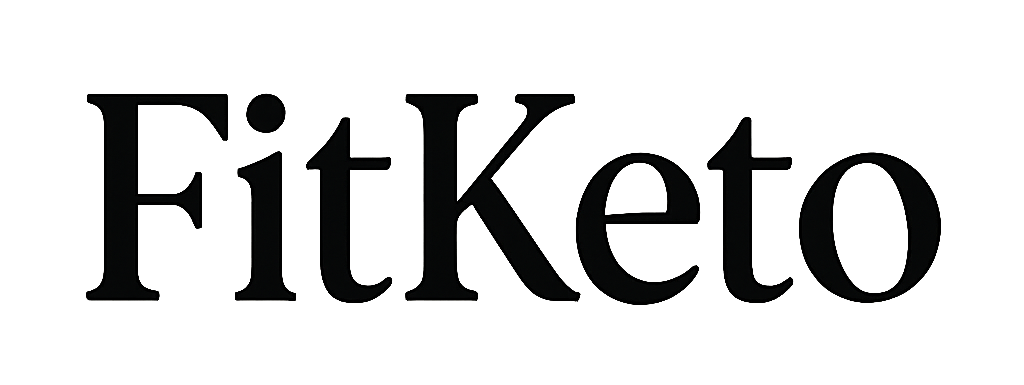In the hustle and bustle of everyday life, mental fog can sometimes feel like an unwelcome companion—clouding thoughts, dulling focus, and sapping energy. For many, finding a clear path through the haze often involves trial and error with countless strategies. But what if the key to sharper thinking wasn’t found in a complex regimen or a stack of supplements, but rather on your plate? Embracing a ketogenic lifestyle has emerged not just as a dietary choice but as a surprising catalyst for mental clarity. This article explores how shifting to keto transformed my cognitive landscape, revealing a newfound sharpness and calm that reshaped the way I experience each day.
Table of Contents
- The Science Behind Keto and Brain Function
- Transforming Focus Through Dietary Changes
- Navigating Common Challenges on the Keto Path
- Essential Foods to Boost Mental Clarity
- Practical Tips for Sustaining Keto Benefits Daily
- Q&A
- In Summary

The Science Behind Keto and Brain Function
The ketogenic diet fundamentally alters the body’s primary energy source from glucose to ketones, molecules produced by the liver during fat metabolism. Ketones are a more efficient fuel for the brain, providing a steady energy supply that stabilizes neurotransmitter activity and supports cognitive processes. This shift can reduce brain fog and improve mental clarity by minimizing blood sugar fluctuations that often lead to fatigue and distraction. Additionally, ketosis has been linked to increased mitochondrial efficiency, which means brain cells generate energy more effectively, enhancing overall cognitive performance.
Key benefits of ketosis for brain function include:
- Improved neuroprotection through reduced oxidative stress
- Enhanced synaptic plasticity, aiding learning and memory
- Reduction in inflammation, which is associated with mental fog and mood disorders
- Steadier energy release, preventing spikes and crashes in focus
| Effect on Brain | Mechanism | Result |
|---|---|---|
| Energy Supply | Ketone utilization vs. glucose | Stable focus, fewer energy dips |
| Neuroprotection | Reduced oxidative stress | Lower risk of cognitive decline |
| Inflammation | Anti-inflammatory effects | Clearer thinking and mood stabilization |

Transforming Focus Through Dietary Changes
Switching to a ketogenic diet was like flipping a mental switch for me. Instead of the usual mid-afternoon slump, my brain stayed sharp, and distractions seemed to fade into the background. This shift didn’t happen overnight; it was a combination of sustained nutritional changes that rewired my focus and energy levels. Cutting out carbs and embracing fats meant my body started producing ketones, which became a superior fuel source for my brain. The foggy feeling that once clouded my thoughts cleared, replaced by a newfound sense of clarity and calm concentration.
Several key elements played a crucial role in this transformation:
- Steady energy release—No more spikes and crashes associated with sugar highs.
- Improved neurotransmitter balance—Teamed with healthy fats, this supported mood and cognitive function.
- Reduced inflammation—Less brain fog as inflammatory foods were eliminated.
| Before Keto | After Keto | Impact |
|---|---|---|
| Carb rollercoaster | Stable ketosis | Consistent mental energy |
| Brain fog episodes | Clear thought processes | Sharper focus |
| Frequent distractions | Enhanced concentration | Improved productivity |

Navigating Common Challenges on the Keto Path
Adopting a keto lifestyle brought with it a set of unique challenges that required patience and persistence. Early on, the notorious “keto flu” hit hard, leaving me fatigued and foggy. To combat this, I prioritized staying hydrated and replenishing electrolytes—especially sodium, potassium, and magnesium—which proved to be a game changer. Embracing a mindset of flexibility helped me navigate social situations and unexpected carb overloads without guilt, reframing setbacks as just temporary detours rather than failures.
Here are some effective strategies that smoothed the transition and kept my mental focus sharp:
- Meal prep and planning: Reduces stress and keeps cravings at bay
- Quality fat choices: Incorporate avocados, olive oil, and nuts for steady energy release
- Mindful eating rituals: Slow, deliberate bites aid in digestion and concentration
- Regular sleep schedule: Essential for cognitive recovery and mood stability
| Challenge | Solution | Benefit |
|---|---|---|
| Keto Flu | Hydration + Electrolyte balance | Faster adaptation, stable energy |
| Cravings | Fat-rich snacks & Meal prep | Reduced temptation, mental clarity |
| Social Eating | Flexible carb strategies | Confidence, stress reduction |

Essential Foods to Boost Mental Clarity
The keto lifestyle is not just about shedding pounds; it’s a secret weapon for cultivating razor-sharp focus and mental agility. Incorporating healthy fats such as avocado, coconut oil, and grass-fed butter helps fuel the brain with a steady stream of ketones, the preferred energy source for neurons. These fats, combined with moderate protein intake, reduce the brain’s reliance on fluctuating glucose levels, minimizing mental fog and boosting sustained clarity throughout the day.
Beyond fats, certain nutrient-dense foods play a starring role in this cognitive transformation. Leafy greens and cruciferous vegetables like spinach and broccoli provide essential antioxidants and B vitamins, which support neurotransmitter function and protect brain cells from oxidative stress. To amplify the brain’s performance on keto, I recommend incorporating:
- Wild-caught salmon — rich in omega-3s for enhanced memory and mood
- Eggs — packed with choline, vital for brain structure and plasticity
- Nuts and seeds — excellent sources of magnesium and healthy fats
- Berries — low in sugar, high in antioxidants to combat inflammation
| Food | Brain Benefit |
|---|---|
| Avocado | Supports cognitive function with healthy monounsaturated fats |
| Salmon | Improves memory and reduces brain inflammation |
| Spinach | Protects neurons with antioxidants |
| Eggs | Boosts neurotransmitter production with choline |

Practical Tips for Sustaining Keto Benefits Daily
Maintaining the sharp mental clarity that keto offers requires more than just avoiding carbs. It’s essential to prioritize nutrient-dense foods that support brain function daily. Incorporate plenty of leafy greens, nuts, and fatty fish, which supply omega-3s and antioxidants that fuel cognitive performance. Equally important is staying hydrated and ensuring you get enough electrolytes like magnesium, potassium, and sodium, especially during the initial adjustment period. Without these, you risk fogginess or fatigue, which can erode the mental edge keto provides.
To keep your mind in peak condition, consider a simple routine that fits seamlessly into your day. Below is a practical table that outlines key habits and their benefits, making it easy to integrate them into your lifestyle:
| Habit | Benefit | Frequency |
|---|---|---|
| Bulletproof Coffee | Boosts focus and energy | Morning |
| Intermittent Fasting | Enhances neuroplasticity | 3-4 times/week |
| Light Exercise | Increases blood flow to the brain | Daily |
| Meditation/Breathing Exercises | Reduces stress, improves clarity | 10 mins/day |
By weaving these habits into your routine, you can solidify the cognitive advantages keto brings. Remember, consistency paired with thoughtful food choices makes sustaining mental crispness a natural, enjoyable part of your keto journey.
Q&A
Q&A: How Keto Helped My Mental Clarity
Q: What inspired you to try the keto diet for mental clarity?
A: I had been struggling with brain fog and inconsistent focus for years. After reading about the keto diet’s benefits beyond weight loss, particularly its effects on brain health, I decided to give it a try. I wanted to see if shifting my body’s primary fuel source could sharpen my mind.
Q: How soon did you notice changes in your mental clarity?
A: Surprisingly fast. Within the first two weeks, I felt my thoughts becoming clearer and my attention more sustained. It was subtle at first—like the fog lifting just a bit—but it quickly became more pronounced.
Q: What aspects of keto do you think contributed most to this mental clarity?
A: I believe it’s a combination of stable blood sugar levels and the steady supply of ketones as fuel. Unlike glucose, ketones provide a more consistent energy source for the brain, preventing the spikes and crashes that often lead to brain fog.
Q: Did you experience any challenges or side effects while transitioning to keto?
A: Yes, the initial “keto flu” hit me hard—fatigue, headaches, and irritability for about a week. But once my body adapted, those symptoms vanished, and my cognitive function improved significantly.
Q: How did your eating habits change mentally, aside from the physical effects?
A: I became more mindful about what I ate and how food affected my brain. It wasn’t just about avoiding carbs but nurturing my body with nutrient-dense, whole foods. This mindfulness spilled over into other areas of life, enhancing my overall mental discipline.
Q: Would you recommend the keto diet to others seeking mental clarity?
A: Absolutely, but with a caveat. Keto isn’t a one-size-fits-all solution. It’s important to consult a healthcare professional and consider your unique health needs. For me, though, it was a game-changer in achieving a sharper, more focused mind.
Q: How has improved mental clarity impacted your daily life?
A: It’s transformed my productivity, creativity, and even my emotional resilience. Tasks that used to feel overwhelming are now manageable, and I find myself more present and engaged in conversations and projects.
Q: Any final advice for someone curious about keto and mental clarity?
A: Start slow, listen to your body, and be patient. Mental shifts may not happen overnight, but with consistency and attention to how you feel, keto can be an effective tool for enhancing your cognitive well-being.
In Summary
In the end, the journey into keto was more than a dietary shift—it became a pathway to a clearer mind and a renewed sense of focus. While the science continues to evolve, my experience stands as a reminder that sometimes, the fuel we choose can reshape not just our bodies, but our thoughts as well. Whether keto becomes your mental clarity catalyst or simply one tool among many, the key lies in listening to your own mind and body on the road to wellness.














Leave feedback about this